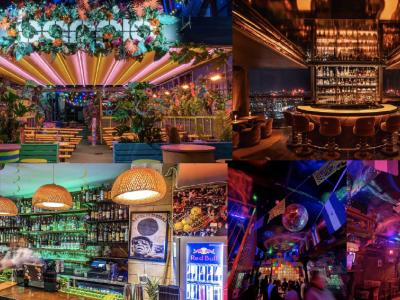As many as a million Argentines flocked to the main avenue in the centre of Buenos Aires to celebrate the 200th anniversary of the start of Argentina’s fight for independence from Spain. Many though were wondering exactly what there was to celebrate.
Their current political leaders are not setting much of an example. The president Cristina Fernández de Kirchner refused to attend the re-opening of the jewel of Argentina’s cultural life, the Teatro Colón, because it was organised by her political rival Mauricio Macri, the elected mayor of Buenos Aires. While the invited guests enjoyed a gala performance inside, and the crowds watched a light show on the facade of the opera house, a few hundred yards down the 9 de Julio Avenue, the president’s supporters listened to their own music show.
At the same time, the solemn Te Deum mass in honour of the first Latin American revolt against Spanish rule was held not in the metropolitan cathedral- one of the few buildings in Buenos Aires that actually dates from the colonial era- but out in the national basilica of Luján: again, because of differences between the president and the cardinal of Buenos Aires, Jorge Bergoglio (who has been accused of colluding with the military regime in the 1970s).
There is little in the present political debate in Argentina that demonstrates any of the revolutionary spirit of the ‘nation’s heroes’ of 200 years ago. But while schoolchildren throughout the country are putting on patriotic pageants to commemorate the dawn of the Argentine nation (which won independence six years later in 1816, and drew up its first proper national constitution in 1853), most Argentines seem to be comparing the celebrations now to those which took place for the first centenary, in 1910.
Buenos Aires then held a ‘universal exposition’, and Argentina was seen as the country of the future. Its economy, based on agricultural exports, was booming, and it was among the top ten richest economies in the world. It appeared politically stable, and was welcoming immigrants from all over Europe as it built confidently for the future. The European nations saw it as a valuable new partner, and helped mark the occasion with monuments they donated to the emerging nation, such as the ‘monumental’ clock tower from the English, or themuscular statue of striving peasants from the German community.
This era of promise did not last long. Argentina’s constitutional rule was interrupted by a military coup in 1930, and the next fifty years saw a succession of increasingly repressive military regimes, repeated periods of economic chaos- and of course the rise of Juan Domingo
Perón and Peronism.
Peronism still defines and divides Argentina. Many middle-class Argentines see the movement- now represented by the president and her husband Nestor Kirchner- as the reason why Argentina after 200 years is uncertain about what it can celebrate. For them, it represents the worst kind of nationalism, with policies based on the lowest common denominator, using bribery, coercion and misinformation to stay in power.
Yet Peronism looks set to dominate Argentine politics for the foreseeable future. In part this is due to the disarray of the opposition, but also in part because it is still the only political force that can achieve things. The Kirchner governments have not only steadied the economy since the 2001crash, but they have brought years of growth (Argentina is on track to record 5% growth in 2010, in stark contrast to many other countries). Some of the revenues from this growth have been redistributed to help alleviate poverty, with payments for each new child, and money to help persuade parents keep their children in school, at an annual cost of $3 billion dollars.
They have renewed attempts to prosecute those who committed human rights crimes during the 1976-1983 military regimes. The Argentina of 2010 may lack the revolutionary vigour of the dawn of the revolutionary struggle two centuries ago. It does not have the confidence and optimism of the centenary celebrations. It can no longer compete with Brazil as a regional power (in 1910, the Argentine economy was five times greater than Brazil’s, now the proportions have been inverted). But the crowds waving their flags by the tens of thousands on 9 de Julio Avenue know they have much to be thankful for.
The threat of rule by the armed forces seems to be a thing of the past. There is poverty, especially in the north of the country, but Argentina remains one of the world’s richest countries in terms of natural resources. And political differences which in the past led to bloody conflicts are now little more than the clash of overweening personalities. Mediocrity is perhaps safer than dreams of grandeur.















